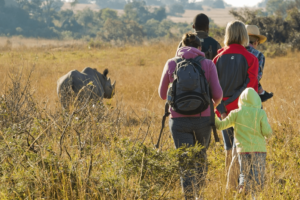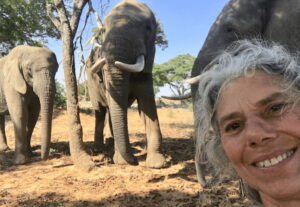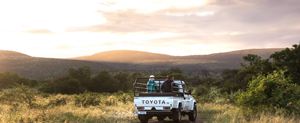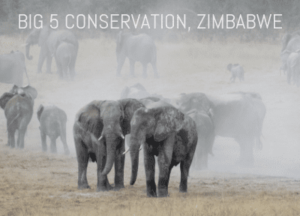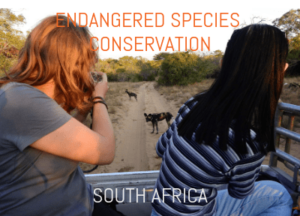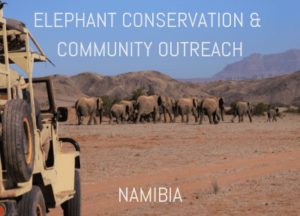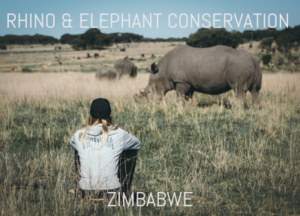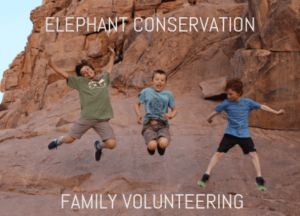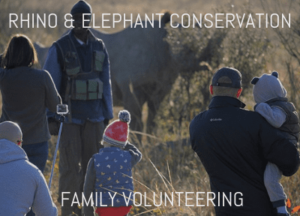August 12th is World Elephant Day, a day for focusing on elephant conservation and recognising the organisations fighting to save elephants from extinction around the world. But what can you do to help elephants?

Unfortunately, there’s really never been a worse time to be an elephant in Africa. The World Wildlife Fund (WWF) has estimated that without urgent action, wild elephants across Africa and Asia could be extinct by 2040 – for many of us that’s still well within our lifetime, and definitely within the lifetime of our children and grandchildren.
“I suppose the question is, are we happy to suppose that our grandchildren may never be able to see an elephant except in a picture book?” – Sir David Attenborough
In the 1970s and 80s, British zoologist Ian Douglas Hamilton flew a light aircraft over Sub-Saharan Africa to count elephant numbers, and discovered what became known as ‘the elephant holocaust’. He estimated that Africa lost 600,000 elephants in a decade. Hamilton’s work led to the ban in the international ivory trade in 1989, which enabled a recovery in elephant numbers until 2008, when corruption, rising Asian demand and the escalation of the ivory trade into criminal gangs increased poaching levels with catastrophic results.
Elephants are now in serious trouble. Numbers have dropped more than 60% in the last decade alone, and today it is estimated that there are around 415,000 elephants in Africa (WWF), mainly concentrated in the south of the continent. The population of Asian elephants is even more dire, with only about 50,000 animals remaining. It is thought that in 1800 there may have been as many as 26 million elephants in Africa alone.
As of 2011, we are losing more elephants than are being born.
Bull elephants with big tusks are the main targets of poachers, and their numbers have been diminished to less than half of females. Female African elephants with tusks are also regularly killed, which has a terrible effect on the stability of elephant societies, leaving an increasing number of orphaned baby elephants.
“I have spent hours and hours watching elephants, and come to understand what emotional creatures they are…it’s not just a species facing extinction, it’s massive individual suffering.” – Dr Jane Goodall
What are the threats to elephants in 2020?
The four main threats to elephants are:
- Increasingly sophisticated wildlife poaching for meat and ivory, controlled by well-financed, heavily armed crime syndicates
- Conflict between communities and elephants over diminishing resources
- Habitat destruction and deforestation for mining and large-scale agriculture
- Poverty and rising human populations.
What can we do to help save elephants?
1. Donate to a reputable elephant-focused organisation
Choose one where you can be sure where your money is going and what projects and activities the donation will be used for. Worthwhile projects include sponsoring individual elephants, supporting anti-poaching rangers, supporting organisations that work on elephant education projects in communities, and those that help mitigate the human-elephant conflict – e.g. helping farmers and communities live side-by-side with their elephant neighbours.
2. Volunteer at an ethical elephant conservation project
Our recommendations, ones that we have visited ourselves and are 100% sure of, are:
![]() ** Family-friendly volunteering!
** Family-friendly volunteering!
3. Obviously, don’t buy ivory (and encourage your friends and family not to as well). This includes antique ivory (the sale of new ivory is illegal), traditionally used to make jewellery, billiard balls, pool cues, dominoes, fans, piano keys and carved trinkets.
4. Buy elephant-friendly coffee and wood. Coffee and timber crops are often grown in plantations that destroy elephant habitats. Make sure to buy Forest Stewardship Council (FSC) certified timber and certified fair trade coffee.
5. Be aware of the plight of captive elephants (in zoos and circuses in particular, and when overseas) and don’t take part in events that exploit them. The zoo industry is starting to wake up and is beginning to develop more elephant-friendly environments, yet they have a long way to go. Circuses, even further. Make a difference by boycotting circuses that use animals, and by boycotting zoos that offer insufficient space to allow elephants to live in social groups, and where the management style doesn’t allow them to be in control of their own lives. When on holiday, don’t ride elephants or visit shows where elephants do tricks such as painting or dancing.
Only by working together will we be able to save one of the planets most iconic species.
– – – – – – – – – – – – – – – – – – – – – – – – – –

